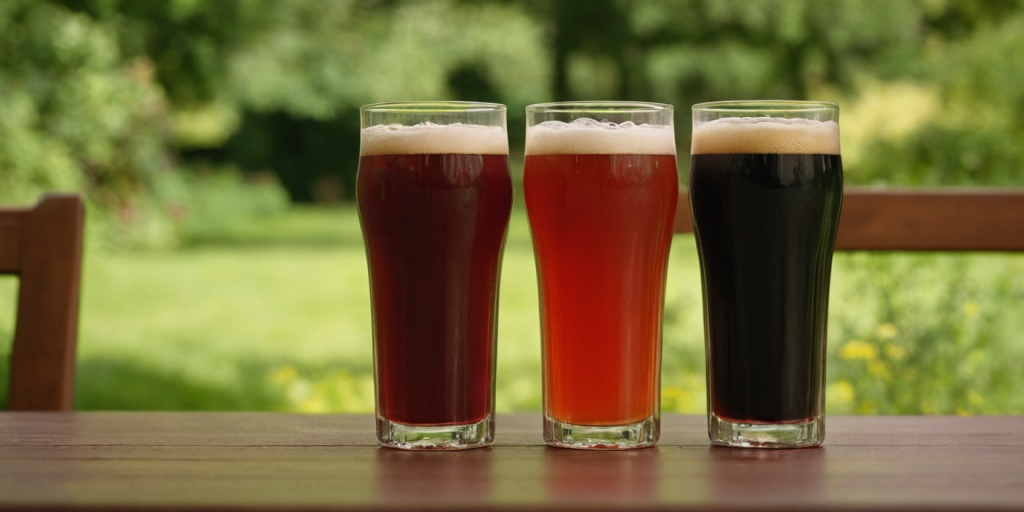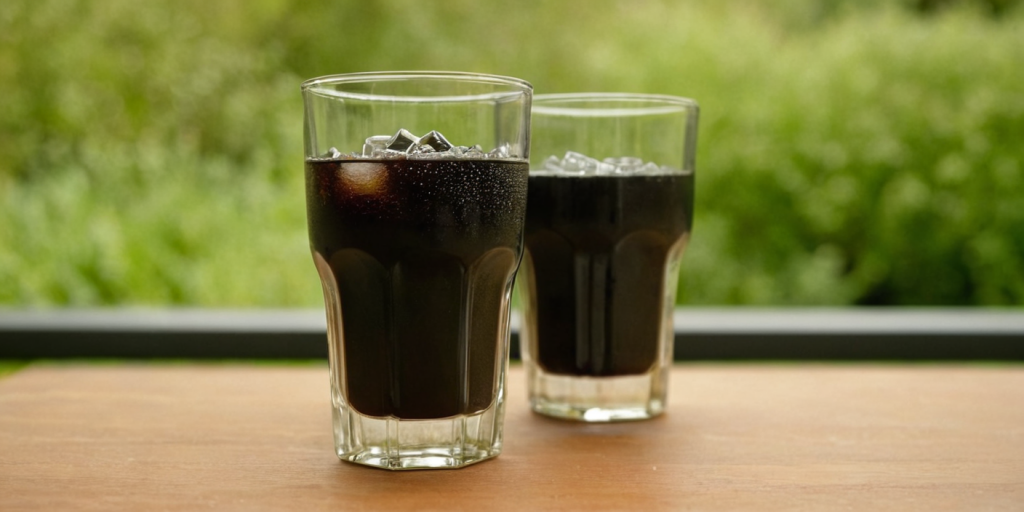In today’s fast-paced world, we often turn to sugary drinks and energy drinks to quench our thirst, give us a quick pick-me-up, or enjoy a social moment. However, behind that tempting flavor lurks a silent danger: an increased risk of developing type 2 diabetes.

A Liquid Foe: Sugary Drinks and Their Impact on Health
Sugary drinks, such as sodas, processed fruit juices, and energy drinks, have become staples in our daily diets. However, studies like the one conducted by Brigham and Women’s Hospital in Boston link regular consumption of these beverages to a 22% increase in the risk of developing type 2 diabetes.
The reason? The high sugar content they contribute, especially fructose, a type of sugar the liver metabolizes differently than glucose. Excess fructose can lead to insulin resistance, a condition that makes it difficult for the body to use insulin effectively to control blood sugar levels.
Beyond Soda: Other Culprits on Your Drink List
While sugary sodas top the list of risky beverages, other products can also contribute to the development of type 2 diabetes:
Fruit Juices: Although they contain vitamins and minerals, processed fruit juices are often loaded with added sugars, raising their glycemic index and their impact on blood glucose. A study published in the journal “Diabetes Care” found that regular consumption of fruit juices was associated with an 8% increase in the risk of type 2 diabetes.
Energy Drinks: In addition to their high sugar content, these drinks often contain caffeine and other ingredients that can affect glucose metabolism and increase insulin resistance. A study published in the journal “Nutrition, Metabolism and Cardiovascular Diseases” found that regular consumption of energy drinks was associated with a 26% increase in the risk of developing type 2 diabetes.
Alcoholic Beverages: While moderate consumption of red wine may have some health benefits, excessive alcohol consumption in general is associated with a higher risk of type 2 diabetes. A study published in the journal “Diabetologia” found that people who consumed more than two drinks of alcohol per day had a 51% higher risk of developing type 2 diabetes.
What Can You Drink to Quench Your Thirst and Care for Your Health?
The good news is there are healthy and delicious alternatives to quench your thirst without jeopardizing your health:
Water: The quintessential beverage for hydration. It provides no calories or sugars and is essential for the proper functioning of the body.
Unsweetened Coffee: Coffee, consumed in moderation, may have some health benefits, such as reducing the risk of neurodegenerative diseases and type 2 diabetes.
Tea: A beverage rich in antioxidants with varieties to suit all tastes. You can enjoy green tea, black tea, white tea, or herbal tea, without adding sugar.
Fruit Infusions: Prepare delicious infusions with fresh fruits or aromatic herbs, sweetening with stevia or honey in small amounts.
Flavored Water: Add slices of citrus fruits, cucumber, or mint to water for a refreshing flavor without added sugar.
Remember:
- Limit sugary drinks: Opt for water, unsweetened coffee, tea, or infusions as healthy alternatives.
- Read nutrition labels: Pay attention to the sugar content and other added ingredients in the beverages you consume.
- Consult with a healthcare professional: If you have diabetes or prediabetes, consult with a nutritionist or doctor for personalized recommendations on your diet and beverage consumption.
Take control of your health and choose drinks that benefit you!
Sources:
- Harvard Health Publishing: Diabetes: https://www.health.harvard.edu/topics/diabetes (Note: I replaced the Youtube video with a more relevant source on diabetes from Harvard)
- National Institute of Diabetes and Digestive and Kidney Diseases: Type 2 Diabetes: [invalid URL removed]
- ScienceDirect: Sugar-Sweetened Beverages and Risk of Metabolic Syndrome and Type 2 Diabetes: https://www.sciencedirect.com/science/article/abs/pii/B9780128157763000371
- BioMed Central: Habitual Energy Drink Consumption and the Risk of Type 2 Diabetes: A Systematic Review and Meta-Analysis: https://bmcendocrdisord.biomedcentral.com/articles/10.1186/s12902-023-01350-1

Type 2 Diabetes: Is It Really Reversible?
A recent National Geographic article [link] explores how type 2 diabetes could be reversible with the right approaches. This condition, which affects millions of people worldwide, has long been considered a chronic and progressive disease. However, recent research challenges this perception and suggests that with lifestyle changes and the right approach, remission is possible. The

How Do GLP-1 Drugs Compare? A Breakdown of Ozempic, Mounjaro, and Trulicity
GLP-1 receptor agonists have revolutionized diabetes management, with drugs like Ozempic, Mounjaro, and Trulicity leading the market. But how do these medications compare in terms of effectiveness, side effects, and patient outcomes? Let’s explore their differences and what they mean for diabetes patients. Understanding GLP-1 Medications GLP-1 receptor agonists mimic a natural hormone that helps

Why Has Medicare Spending on Diabetes Medications Skyrocketed in 5 Years?
In the past five years, Medicare spending on diabetes medications has increased nearly fivefold, reaching $35.8 billion in 2023. This surge has been primarily driven by the growing use of GLP-1 drugs such as Ozempic, Mounjaro, and Trulicity. But what is behind this cost escalation, and how does it affect patients and the U.S. healthcare

The Gut Microbiota and Blood Sugar Control: A Hidden Connection
The human gut is home to trillions of bacteria that play a crucial role in digestion, immune function, and even metabolism. Recent research has revealed a fascinating link between the gut microbiota and blood sugar regulation, shedding light on how the balance of microbes in our intestines can influence diabetes risk and overall metabolic health.

The Dawn Phenomenon: Why Blood Sugar Rises While You Sleep
For many people with diabetes, waking up with high blood sugar levels can be frustrating—especially if they didn’t eat anything overnight. This early-morning spike in blood glucose is known as the Dawn Phenomenon, and it happens due to natural hormonal changes in the body. But why does it occur, and how can it be managed?

The Influence of Red Light on Blood: Can It Improve Diabetes?
Type 2 diabetes is a metabolic disease characterized by insulin resistance and elevated blood glucose levels. In the search for complementary alternatives to improve glycemic control, red light therapy has gained attention due to its potential to enhance circulation, reduce inflammation, and optimize cellular function. But what does science say about it? ✨ What is

